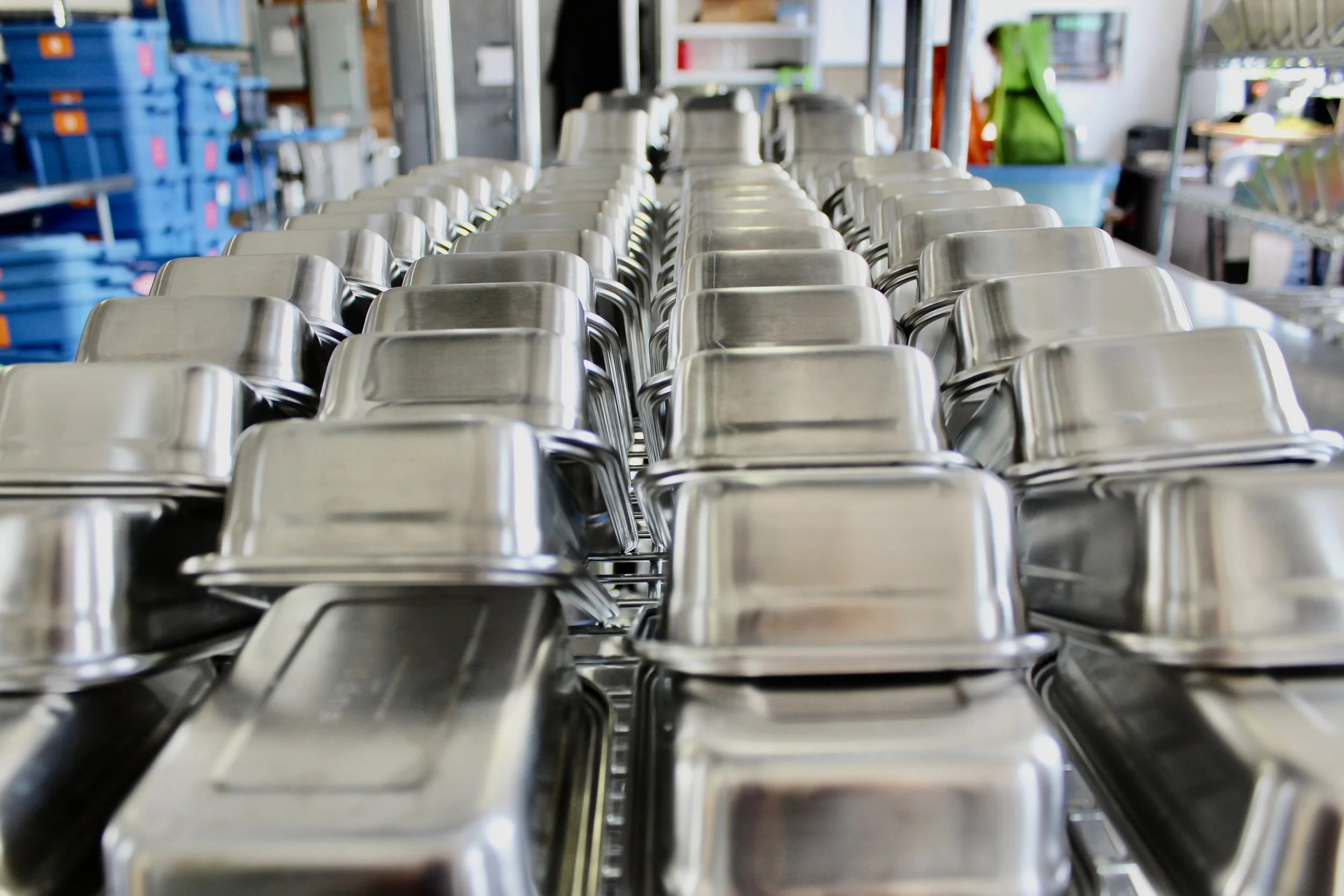
Suppli’s Focus on Sustainability.
We’re a proud member of the circular economy, countering the traditional “make -> use -> dispose” model, and keeping resources in use for as long as possible.
Why do we exist?
A lot of food packaging isn’t recyclable (that is – it’s garbage).
This includes black plastic, dirty pizza boxes, and cardboard or recycled shell containers with glossy insides (they’re lined with plastic!).
Contaminated recycling batches mean a lot of recycling isn’t actually reused.
For context, only 9% of the 3.2 million tonnes of plastic waste generated each year in Canada is recycled. Some can’t be recycled in most municipalities (see black plastic above), some recyclable plastic is thrown in the garbage, and some batches of recycling are contaminated by things like peanut butter jars that haven’t been properly washed out.
Biodegradable packaging doesn’t all compost naturally.
Items like bio-plastic packaging (plastic made from plant or other biological material instead of petroleum) are only compostable at an industrial composting facility. Unfortunately, these are not compostable in Toronto and many other municipalities; they go in the garbage.
But are bio-plastics recyclable?
Some are technically recyclable, depending on their composition; most aren’t. Waste management programs often aren’t equipped to distinguish between the two, so they go in the garbage.
For more information on bioplastics, check out this CBC article.
Our containers are made from food grade (18/8) stainless steel and silicone. Unlike plastics, stainless steel can be recycled indefinitely. Our silicone lids are down-cycled for use in other products, and have a much greener end-of-life profile than plastic products built for single-use.
Our containers.
What happens to Suppli’s containers when they can no longer be used?
We hope to keep containers in circulation for hundreds (if not thousands!) of uses. However, when they can no longer be used, the stainless steel bases for our containers are 100% recycled and the silicone lids are 100% down-cycled into other products through TerraCycle.
Why do you use silicone lids instead of plastic? Is silicone greener?
We’re glad you asked! In terms of production, plastics for single-use takeout containers are most often made from crude oil (a non-renewable resource) that's extracted from Earth and transformed into plastic by altering oil's carbon compounds. Plastic products cannot be recycled indefinitely, if at all (depending on the municipality's recycling program), leading to a significant amount of waste. The primary input for our silicone lids comes from an abundant resource (sand). Silicone is more durable than plastic, so can be more readily down-cycled (re-purposed). In addition, while normal plastics break down into dangerous microplastic pieces that can be ingested by wildlife and ocean life, silicone doesn’t break down enough to pose this risk.
For more information, check out the post “Silicone: The Plastic Alternative” by EarthHero.
Product Quality and Safety.
Our container bases are made from high quality 18/8 stainless steel (also known as type 304 stainless steel). Container bases and silicone lids are food-grade, tested and certified by an independent third party. They are oven-safe (bases only please!) and dishwasher-safe.
Our Suppliers.
Suppli’s containers are sourced responsibly from our partners in China, who use 30% recycled materials for the production of our stainless steel container bases.
While we understand gender equality considerations go beyond simple numbers, we’re proud to partner with a supplier whose senior executive team is comprised of 75% individuals identifying as women, and whose board is 50% individuals identifying as women.





